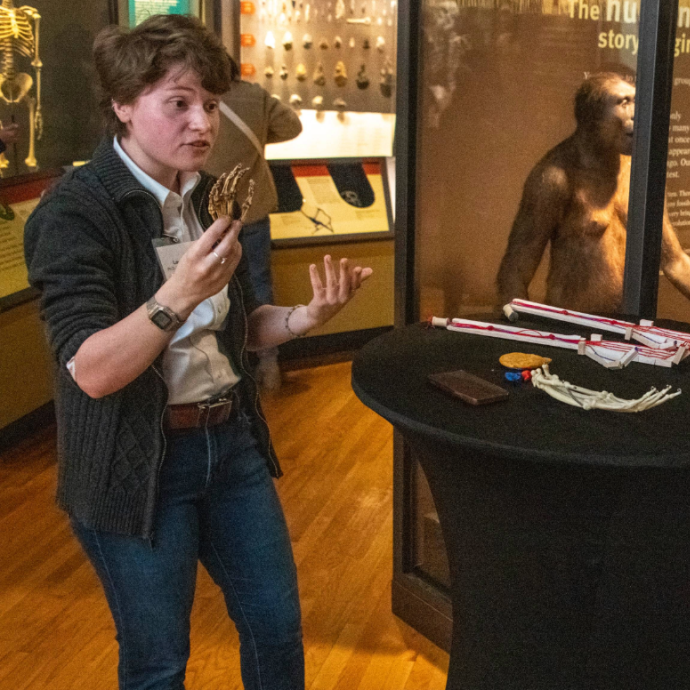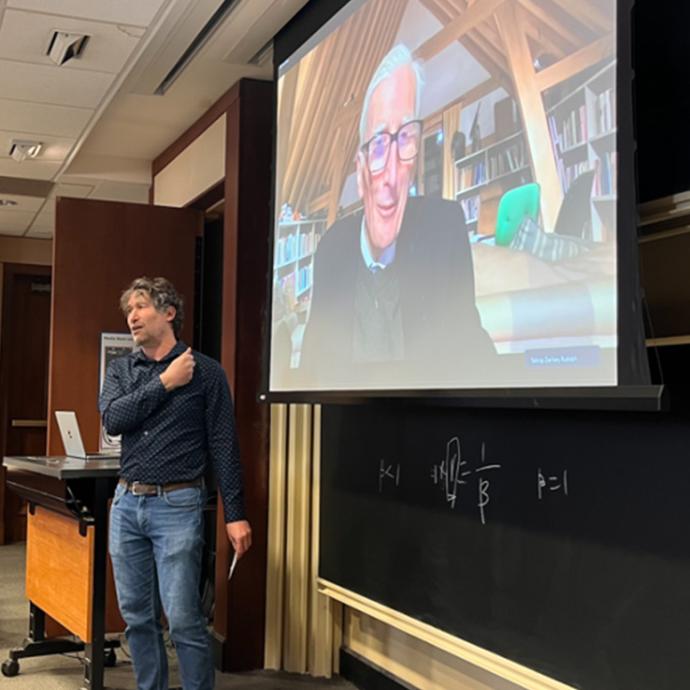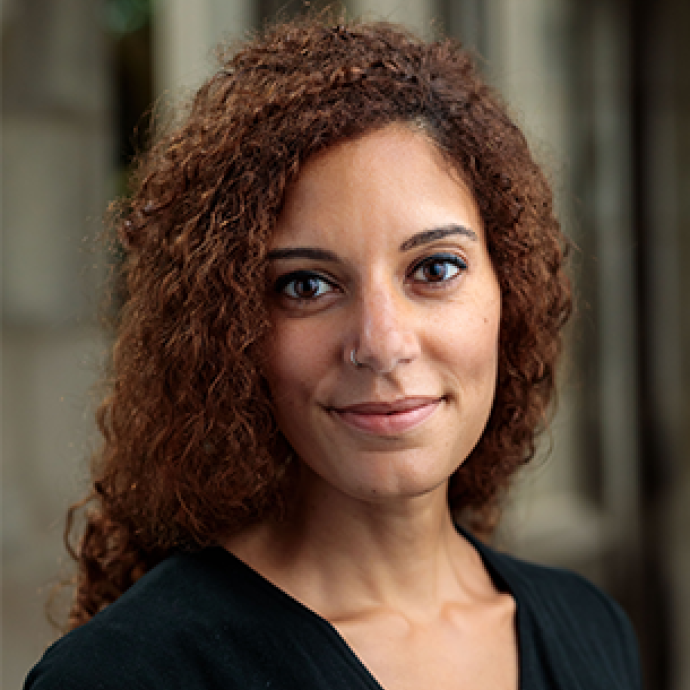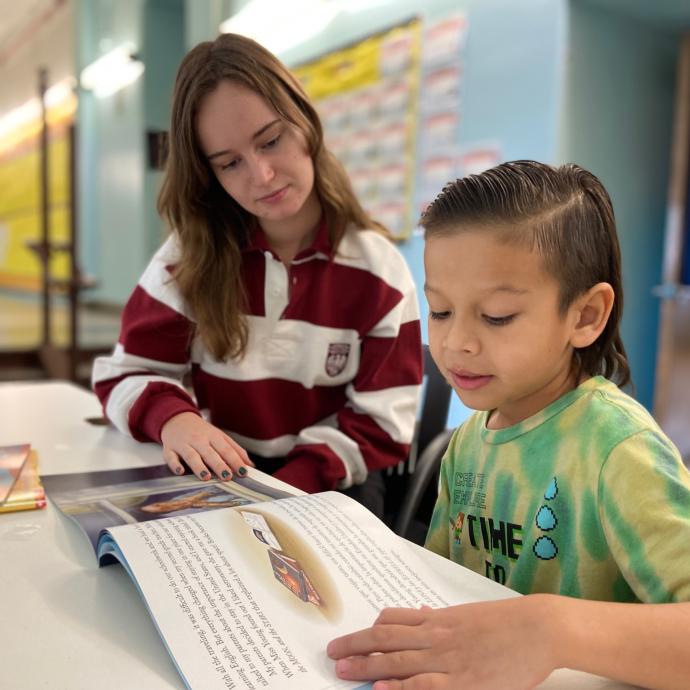It’s fitting that when Darby English describes his approach to teaching, he thinks not of a word, but of an image.
He likens his approach to “whatever the opposite of a pyramid is. I try to be at the bottom and shape things as they emerge.”
For English, an important part of leading an effective discussion is “knowing when to get out of the way,” he says. “In a situation where the center of the lesson is an object, say, a work of art or a text, it makes very little sense, or the wrong kind of sense, for the teacher to be the principal force in the room. The object should be the motivating factor.”
In the Presence of Art
English says he particularly enjoys courses where he can teach in the presence of art, whether in a museum or elsewhere in the city. “That kind of teaching never requires me to contrive my way out of the driver’s seat. It’s obvious what the authority in the room is, and it’s clearly not me. I’m there to help us clear paths to the object, which when approached this way, can focus and animate looking and learning in ways I find almost indescribably exciting.”
During a recent session of his course, “Modern/Postmodern,” English deftly evaded students’ attempts to give him the last word.
As the class parsed a dense critical essay, one student called for a timeout. “Is [the author] a modernist or a postmodernist? Which side of the fence is he on?” Then he turned to English, as if for a ruling on the matter.
“Good question,” English said. “But who am I to decide this?” Instead, he turned to another student. “Luis has an answer.”
English, who studies modern and contemporary American art, says this kind of evasion is tactical and deliberate. “The students and the material are in a conversation that I advise. One way for a discussion-oriented class session to succeed is by my effectively disappearing into the conversation for a time, rather than always being the figure to whom everything defers.”
Improvisation
He is equally reluctant to identify a fixed set of pedagogical tools on which he relies.
“This may sound terribly unprincipled, but I improvise my way through most discussion-oriented courses. Because I really do believe that there are as many classrooms as there are course meetings. I find lesson plans and suchlike to be a hindrance rather than a help,” he says. “Preparation, for me, means time spent looking at or reading as closely as possible the objects I’m going to teach.”
English admits he was initially more interested in scholarship than in teaching when he embarked on an academic career. “It was by sheer accident that I discovered I could enjoy being a teacher,” he says.
“And already the best thing for me about working at Chicago is the undergraduates that I teach,” he says. “Without question, they’re the best part. This came as a complete surprise.”










 —Prof. Chuan He
—Prof. Chuan He
